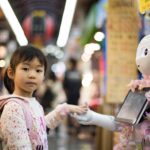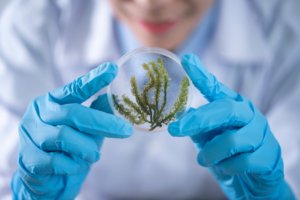
Why is scientific literacy a crucial skill for the future?
The importance of scientific literacy is widely discussed, especially in recent times when the world seems to be more polarised from artificial intelligence, vaccines to global warming. The work being done on these topics are so crucial that it can ultimately lead to a sustainable future of humankind.
What is Scientific Literacy?
The US National Center for Education Statistics defines scientific literacy as:
Scientific literacy is the knowledge and understanding of scientific concepts and processes required for personal decision making, participation in civic and cultural affairs, and economic productivity.
Why is scientific literacy important for the future?
Data and Information overload on a daily basis

With our world becoming increasingly global, there is a proliferation of data and information everywhere. Our smartphone devices have allowed us to get real-life updates and news at the touch of a finger. The information has gone from scarce to abundant. But how do we distil and make sense of all of it? Also, what is the correct information, and what is not? How do we fact check every single article that we read?
A simple google search on any science topic would reveal how much conflicting and misleading information is out there. So, how can we equip ourselves with the skills to ensure that the decisions that we can make for ourselves right now and in the future, is with the best possible knowledge?
The proliferation of fake news
The latest Cambridge Analytica scandal and the fact that many of us get our daily dose of news from social media is because of what is being fed to us are increasingly click bait articles. Our fear and outage are increasingly being sold for profit.
Adding to it, other stakeholders, and agencies in the society who likes to twist facts to sell their own agendas.
“One of the great tragedies of modern society is that we have politicians cherry-picking science in the interests of their own social, cultural, political, and religious belief systems, and that’s the beginning of the end of an informed democracy.” – Neil Degrasse Tyson
Informed citizens = sustained communities
Everyday citizens in a society or country are making decisions that affect the societies they live in. Everyday activities, believe it or not, require an understanding of science literacy. For instance, be it taking a KeepCup (reusable coffee cup) from your home for your coffee order or responsibly recycling the technology that is lying around your home. In order to ensure that you make responsible decisions which affect the society at large, being scientifically literate is fundamental.
Being scientifically literate will prevent people and agencies with their own motives to take advantage of you.
How do we ensure that we develop science literacy for the current and future generations?
Responsible Dialogue
As adults, we should first read, amass knowledge and become sufficiently science literate in understanding the important science-based issues of our day. It will help us understand the nuances of different issues, which in turn will equip us to have informed and responsible dialogues with fellow citizens. A good start can include subscribing to reputed science bloggers, pages, and journals to kickstart your foray into science.
Next, engage in a responsible dialogue or debate with another member of the society. Your difference of opinions can lead to a need for you to read more on the subject, or make the other person understand more about your point of view and the underlying knowledge and information. If everyone comes to the conversation with a base level of information and the willingness to listen to a different point of view, responsible dialogue ensures. We don’t need to hold the same beliefs to find common ground on important science-based issues of today and the future.
Further to that, why not try and explain the science topic you read about in simple terms to a child. You will be amazed at your own ability to explain, and at the same time notice how much more you need to learn to explain further.
Education to increase science literacy
The future generation needs to be equipped with scientific skills by schools. This will help them solve problems and develop critical thinking skills. So that they can take an informed view of whatever they read on the web.
Neil Degrasse Tyson has some advice for parents who want scientifically literate children:
Science is inherent in everyday life and in everything we do, yet we may not even realise it. In the future, we need to get into the habit of thinking critically, raise questions, and be open-minded to new things along the way. Read, ‘Dissect’, Engage!
Do you have a favourite science journal/ website/channel/ program/Twitter account to follow? If you have a favourite way of improving your own science literacy, let us know in the comments. We will collate it and feature you in our next post.





